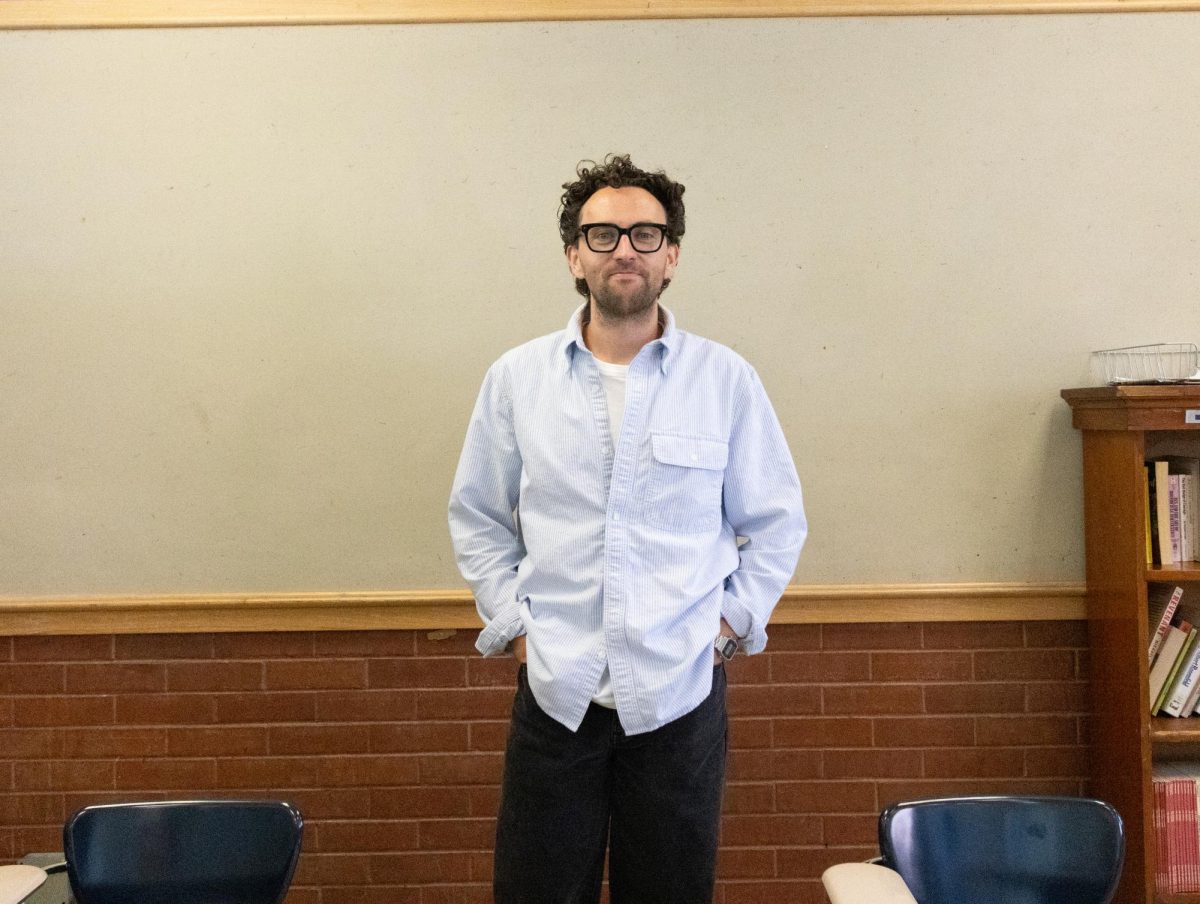Follow Kartchner, But Not On Instagram
September 30, 2019
Of all the assemblies you’re planning to skip this upcoming year, I really hope this was not one of them. We all need help in becoming free from the chains of our devices.
“Save the kids” is a hashtag that Collin Kartchner has adopted on his crusade to expose the dangerous negative effects social media has on teenagers’ mental health. His awakening came when he met his wife’s old colleague and discovered that her daughter had died, taking her own life. He showed sympathy and asked what happened. Her mother held up an iPhone and said, “We gave her a loaded gun”.
Behind the happy photos of her daughter smiling on Instagram, there was deep pain and feelings of inadequacy. She had succumbed to her depression and hopelessness and had taken her own life due to pain associated with cyber bullying and feeling as if she did not compare to all the perfect lives she saw online.
Kartchner’s mission was clear — he decided to fight Instagram with Instagram. He now uses social media to spread messages of hope, guidelines for a happy online life, and standards to follow.
Rule No. 1 — Delete anyone you follow who does not make you happy.
“Collin is a warrior for our children,” Utah Attorney General Sean Reyes said.
After beginning this movement and speaking to children, teens and parents, he has received thousands of direct messages from struggling teens crying out that they too are entrenched in unachievable perfection.
His message touches on the subjects of the connections between social media and anxiety, depression and suicide; the neurological changes taking place in the developing brain due to the electronics; ways to protect and cultivate children’s self-worth, mental health and social skills and the reconnecting with the people who really love us.
“Social media’s negative effects on youth mental health and too much screen-time is the underlying link to the current epidemic rise in teen depression and anxiety, eating disorders, self-harming, suicide ideation and suicide itself,” Kartchner said.
He challenges kids to “Unplug from social media and take your brain back.” He points out that gaming and social media has the same effect on a developing brain as alcohol. No other story is quite as tell-taling as an experience he shares with his audiences about giving a presentation in Silicon Valley. He was speaking to a school filled with tech developers’ kid. Although their parents created the iPhones humanity cannot live without, none could have one. In fact, many schools in Silicon Valley have gone technology free.
Kartchner puts a humorous spin on his presentations. To hear him is almost like listening to a live comedian. The gravity of his message touches peoples deeply and there are usually laughs heard and tears shed at his delivery.
His eye-opening message is so critical to our tech-obsessed generation because no one realizes how perilous phones equipped with social media are, especially for children and teens who don’t know how to judiciously use theirs. We are trapped deep down the rabbit hole of comparison. If we choose to ignore his advice, the problems phones are creating will only get worse. We will see a larger rise of teen depression, anxiety and suicide.
It’s not difficult to put a time limit on phone and social media use, and when we decide to look up from the detrimental screens that consume us, we might realize life is to be lived and not observed.
So take Karchner’s advice. Put down the phones, delete people who make you unhappy, and live.





























